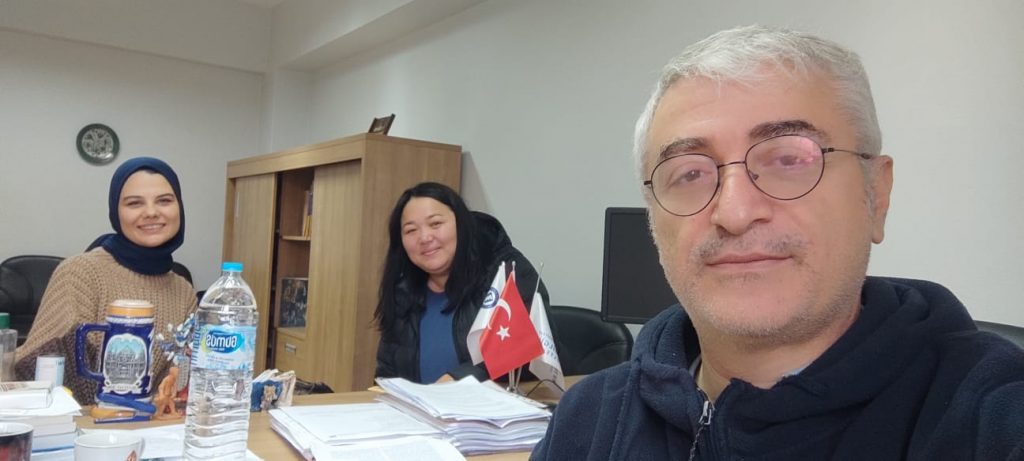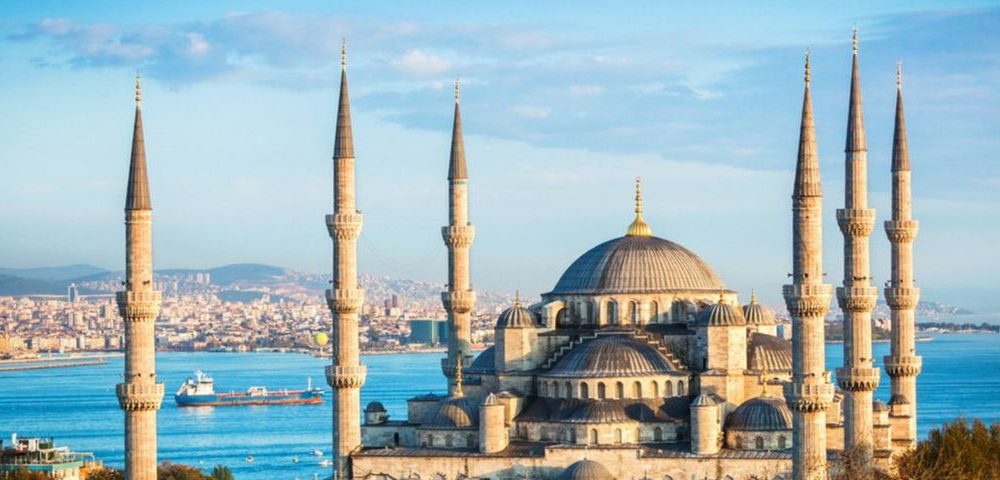Introduction
My name is Elnura Ibraeva and I am from Kyrgyzstan, a Central Asian country with a post-Soviet history. I am the head of the Fieldwork department and a project manager at SIAR research and consulting in Bishkek. I’ve been working at the company for 23 years since its foundation. My colleagues and I at SIAR research and consulting have conducted hundreds of sociological and marketing research for international and local organizations and businesses. Working for years, the company staff became my family.
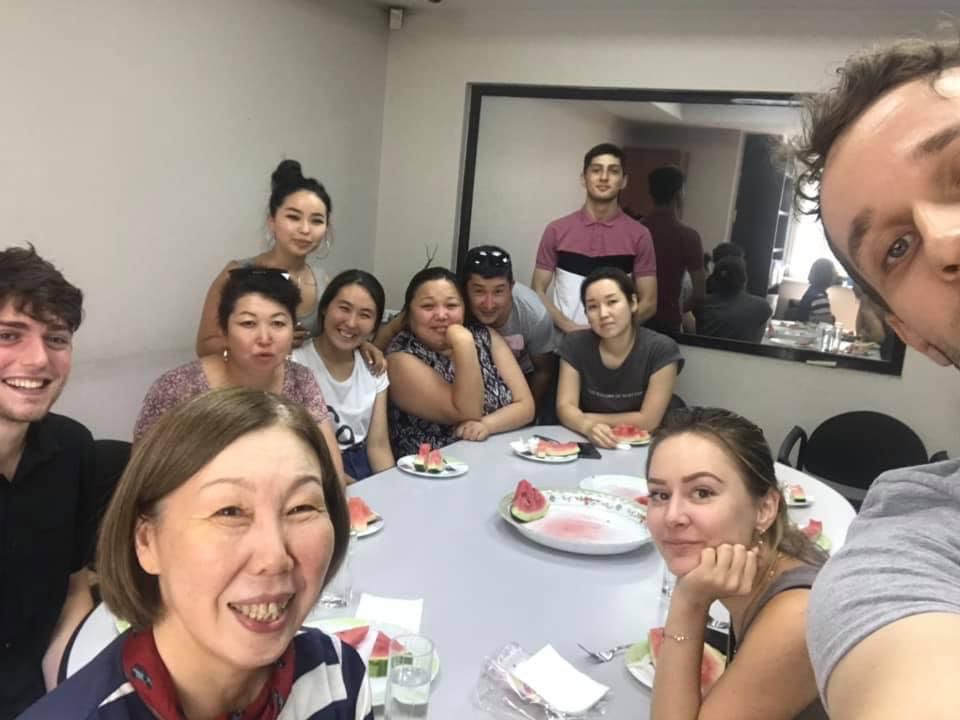
Secondment at Marmara University in Turkey
I’ve been on a secondment hosted by Marmara University in Istanbul for three months between September to December 2021. I was invited as a guest researcher at the Faculty of Political Science and International Relations in the frame of the research and training project Central Asian Law: Legal Cultures and Business Environments in Central Asia, funded by the European Commission’s H2020 MSCA-RISE programme. The project is implemented by 12 institutions in 11 countries in Europe and Central Asia. One of the participants is Marmara University in Istanbul, to which I was seconded from SIAR research and consulting.
First Days in a New Place
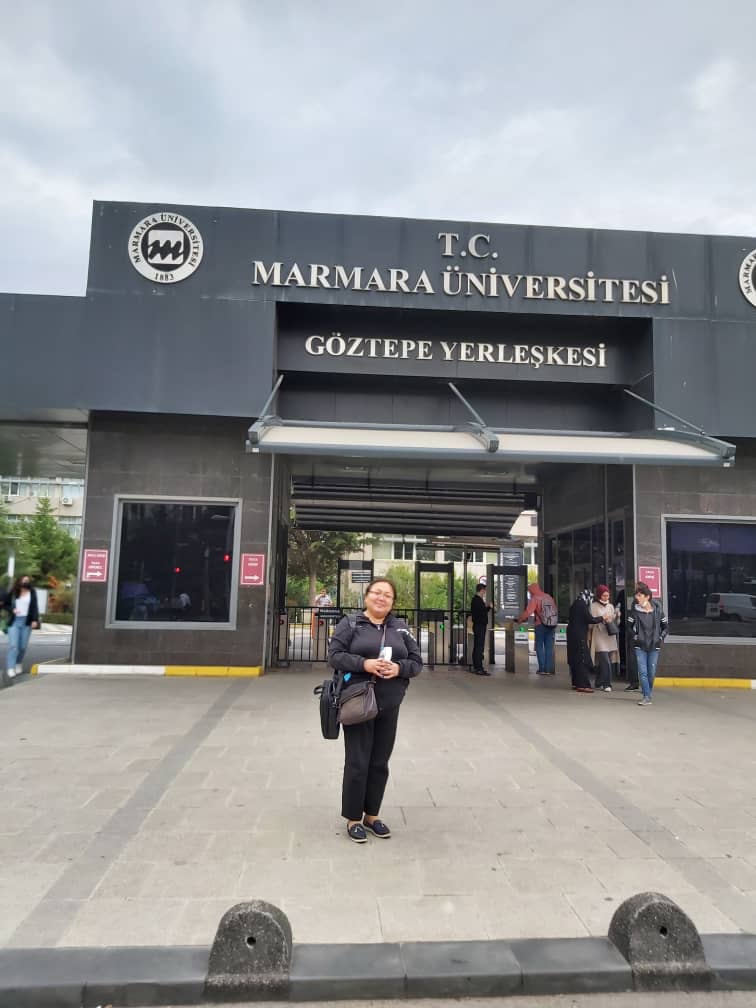
I arrived in Istanbul early in the morning on September 14. Right after my arrival I went to a hotel that I booked only for three days. I thought three days would be barely enough to find an apartment located nearby the Marmara University for three months of stay. However, my thorough searches finished on finding a room for a two weeks rental period on Airbnb, which was of course not enough either. Fortunately, at the end Professor Erhan Dogan was very kind to offer me his help. Finally, I have settled at Marmara University guesthouse called Konukevi. As my accommodation was in another district, I used the transportation service provided by the university which was very comfortable and time-saving. Professor Erhan Dogan introduced me to the university staff. I was warmly welcomed by them and had wonderful time talking with them about work and life in Istanbul.
Another guest researcher from Turkmenistan Berdymyrat and I became good friends. We’ve met several times during our secondment in Istanbul. I will not forget our conversations and useful advice that he gave me.
In other words, I am immensely grateful for meeting people from abroad with different backgrounds and cultures. I am thankful for being able to learn from them and expand my practical knowledge and develop research skills. I was happy to spend these three months in Istanbul as it is my most favorite city in the world. Also, it was a good practice of my language skills, since I speak some Turkish.
Workshops
My colleague Berdymyrat and I have conducted workshops on research skills for students at the university in October, 2021. The topic of the workshop that I have conducted was about the introduction to sampling, whereas Berdymyrat focus was on using the Google Forms when conducting online surveys.
The introduction to sampling workshop covered several topics, including sampling methods, data collection methods, tools and instruments used in data collection, and challenges faced.
Some of the main points that were highlighted in the workshop include but not limited to:
– Data collection can be performed by telephone, mail, and face-to-face interviews.
– Online surveys have become more common recently.
– Survey Monkey and Qualtrix are among the most popular online services for data collection.
– Sampling instead of measuring the entire population is time and cost saving.
– The biggest challenge of surveys is to get a representative sample of respondents with a good response rate.
– Convenience sampling is common due to accessibility of survey respondents (friends, students, etc.). However, the results are not often statistically significant.
– The main condition and difficulty of random sampling is selecting a subset of respondents that could represent the entire population.
Research
The topic of my research project is the factors shaping the business environment of entrepreneurs from Kyrgyzstan in Turkey. The goal of the research was to identify the main factors that shape business environment of immigrant entrepreneurs from Kyrgyzstan. For data collection I have conducted qualitative in-depth interviews with entrepreneursfrom Kyrgyzstan who have operating businesses in Turkey. The sample was drawn using snow-ball method. The data collection is still in the process as some of the respondents postponed interview appointments due to their busy schedules.
The initial questionnaire was designed to determine the peculiarities of the business environment of entrepreneurs from Kyrgyzstan in Turkey. It included the following subtopics:
– Immigration experience to Turkey
– Experience of doing business in Turkey
– Assessment of the business environment
– Policy
– Legislation
– Society
– Problems and difficulties of doing business in Turkey
– Environment
– Technology
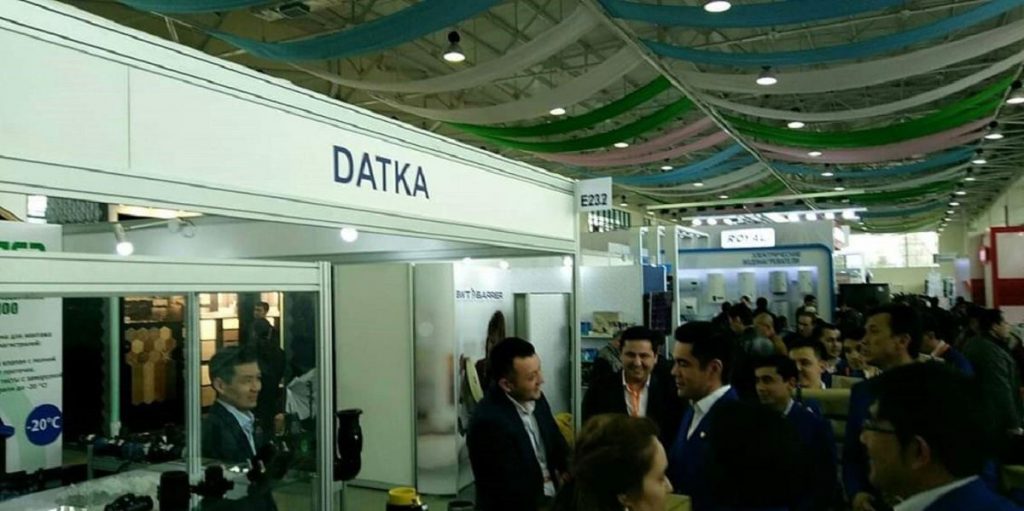
Professor Erhan Dogan and I have discussed and removed Environment and Technology subtopics from the initial questionnaire. Also, some of the questions were reformulated in order to make them sound easier to understand by respondents. The simpler the question, the more information you can extract from respondents.
The next important step in my research was to recruit and thus to find the right respondents to answer the research questions. From my own knowledge and the statistics of immigrating Kyrgyz people to Turkey, showed that most of them come for studies or are hired to work in service or other industries. To tell the truth, I was a bit worried that I would not be able to find Kyrgyz immigrants doing business in Turkey. I wrote an official letter to the General Consulate of the Kyrgyz Republic in Istanbul which in its turn provided with contacts of the chairman of the Kyrgyz diaspora in Turkey. The chairman gave me the contacts of several businessmen, and these businessmen further shared the contacts of their acquaintances who also do business in the country. At the end, I was able to collect as many respondents as needed for analysis.
The initial questionnaire was in Russian language, but it was later translated into Kyrgyz. I assumed there was no need to translate to Kyrgyz as back in Kyrgyzstan the vast majority of entrepreneurs prefer to be interviewed in Russian rather than in Kyrgyz language. However, it was not the case with Kyrgyz entrepreneurs in Turkey as they asked me to ask questions in Kyrgyz which of course I did. They explained their preference by learning appreciating mother tongue language from Turkish citizens.
The duration of each interview averaged about 1 hour. Some of the interviews were conducted in Istanbul, while some others will be held in Bishkek, since interviews have been rescheduled due to conflicting schedules of the respondents. Some of the interviews were conducted face-to-face in Istanbul and others by phone. All interviews were recorded on audio with their permission and transcribed with translation from Kyrgyz into Russian.
So far, I have noticed a few things from the data collection stage:
– 90% of interviewed respondents are males.
– All respondents preferred answering questions in Kyrgyz (mother tongue language)
– The majority of respondents believe that there is no corruption in Turkey. Some of them think there may be corruption at a very high level, where there are millions of dollars.
– Everyone is satisfied with the business laws in Turkey as they come from citizens and work for 100%.
In addition
As a project manager and head of the Fieldwork department at SIAR research and consulting, I’ve never created questionnaires, recruited respondents and conducted in-depth interviews myself. Therefore, it was a good and useful experience being involved in all these stages of research at first hand. I have never written a research article either. My colleague from Turkmenistan Berdymyrat shared his knowledge on how to write a well-structured, readable, unbiased and ethical peace of research paper. And hopefully, I will write one such by the end of the project.

Conclusion
In conclusion, I would like to thank Marmara University staff for hospitality, especially Professor Erhan Dogan for his support on each aspect of secondment from starting with moving to Istanbul to sharing practical knowledge about writing a research project. I would also like to thank the research and training project Central Asian Law: Legal Cultures and Business Environments in Central Asia, funded by the European Commission’s H2020 MSCA-RISE programme for making my secondment possible.
